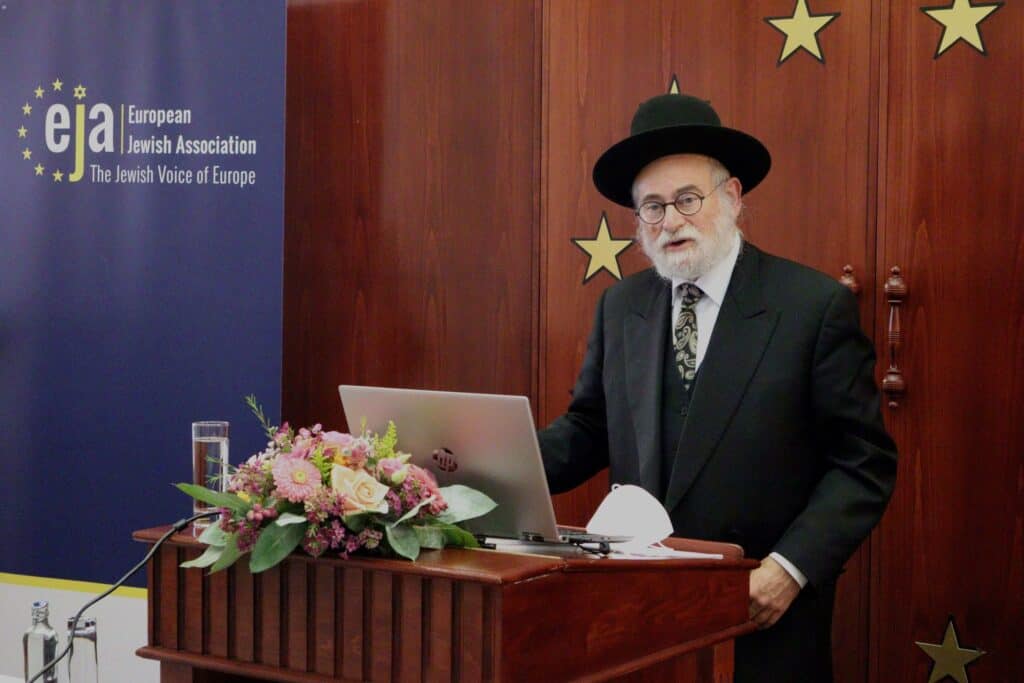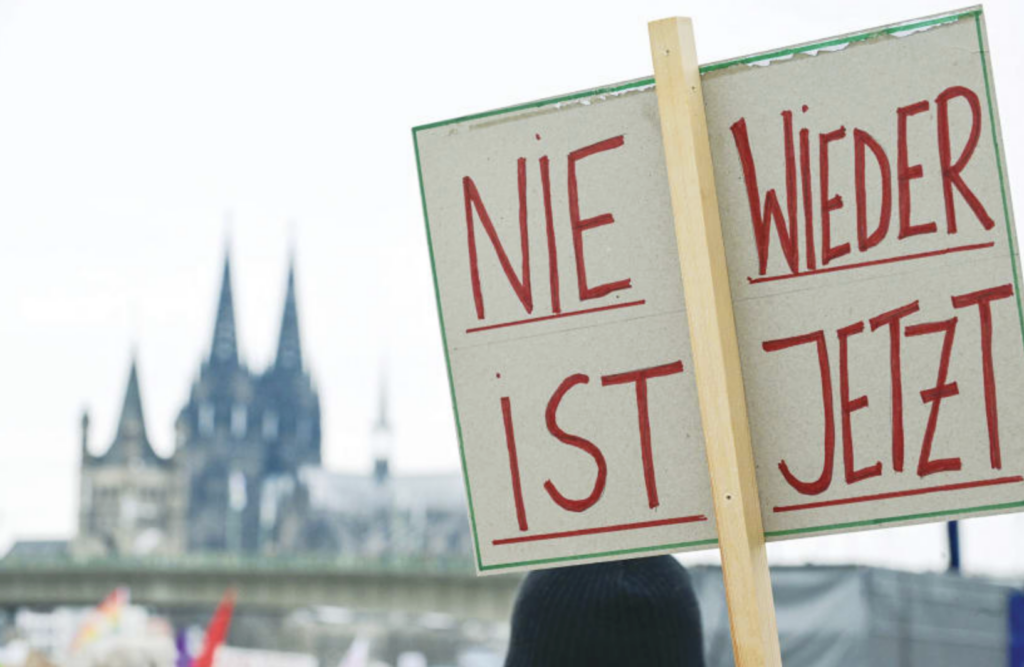Every Day during the Corona crisis our Advisory Board Member Chief Rabbi Binyomin Jacobs (NL) writes a diary, on request of the Jewish Cultural Quarter in Amsterdam, which is published on the website of the NIW, the only Jewish Dutch Magazine. Rabbi Jacobs is the head of Inter Governmental Relationships at the Rabbinical Centre of Europe. We will be regularly publishing a selection of his informative, sometimes light hearted, but always wise pieces.
For our Dutch readers you can follow the diary every day at NIW home page: https://niw.nl
Diary 20 Jan. 2021
That such a figure should commemorate my family …….
It is now 23:15 on Wednesday. I just got home. Gave a lecture in Gorinchem. Of course without a visible audience, but in a professional studio and several hundred who were watching at home and many thousands of them are expected to watch the broadcast at a later date. I am used to it by now. If I can immediately speak to visible people again, it will take some getting used to giving a lecture to real listeners.
A lecture with a 15-minute break with tea in the middle. Audience that can just see me in real life and I can look at those present. Now you should know that I used to read from the faces whether I needed to dig deeper into the matter, whether it was time for a parable or a joke to keep people on their toes.
Since I am now starting to realize that we can hardly go outside at the end of this week (good for my health? Not so much.) Today I did my fast walk of one hour instead of the usual 25 minutes.
In the meantime, the condolences keep coming in by e-mail (Chief Rabbi Jacobs recently lost his son – Editor), on facebook (so I was told, because I don’t get on facebook myself) and the phone hardly stops ringing. So many warm and beautiful words.
Also an email advising me to repent. Well-intentioned, but I firmly rejected the proposal without any consideration. Should the author of that lengthy e-mail read this diary, she will hear that I was not charmed by her attempt at conversion, nor did I bother to respond to her e-mail.
Conversion is a loaded topic for us Jews that are still alive. “But”, I hear you think, “you are so good with the Christians for Israel, aren’t you?” Dear people, they do not seek to convert! I know their motives, I know their background, I am aware of their statutes and I am in almost daily contact with them. Together we fight for Israel and against anti-Zionism. To convert? They have many fellow believers who strongly disapprove of their pro-Israel action and point out their flaw that they do not serve as missionaries amongst Jews. But they do try and convert, but of a very different kind. They are trying to convert the churches to change their anti-Israel stance to a pro-Israel approach!
Why am I raising that now? Not because of that dorky letter from that lady, but because the Jewish Agency has stopped working with a Canadian Christian organization called Return Ministries because of a rumour that they are trying to convert people. The president of that organization is a Messianic Jew. And although every person is responsible for himself and is allowed to do what he cannot resist, this is disturbing.
A Messianic Jew who wants to bring Jews to Israel? Who himself has thrown his Judaism overboard? For me a contradiction interminis! And so, I fully understand the Jewish Agency.
And while that lady tries to swindle me away from Judaism, I read today in the authoritative British daily the Guardian that a recent survey shows that many British Jews are afraid to show signs of their religion, such as wearing a kippah or a Star of David in public. Rising anti-Semitism, which is increasingly becoming the “normal”! Let that converting lady spend her time on that and leave me alone. Linking this conversion attempt to the death of our son is unsavoury to say the least.
In the meantime, the sheer number of statements of support resulting from my diary shows that I have built up a wide readership. Apparently, I’m not the only one who knows that.
Because, and now it comes, today I have been approached from four different sides with the request to pay attention in my diary to the choice of the speaker at the annual National Remembrance Day on May 4. The Committee for 4 and 5 May actually chose a figure who has made anti-Semitic remarks on various occasions. The Jewish Telegraph Association (JTA), which is generally well-informed and meticulous, has devoted an entire article to it, and the statements the speaker is said to have made do not lie. I am sure that this week’s NAV will also pay substantial attention to it.
It is incomprehensible that this Abdelkader Benali, who has nothing to do with the 1940s and 45s, will speak at the same commemoration where last year our King Willem Alexander brilliantly expressed exactly what the especially Jewish Netherlands had been waiting for, for so long. What an encouragement that was! And now this figure comes…? I don’t get it, I feel like May 4 is being taken away from me, but I hope I misunderstood everything, that the JTA was misinformed and the various quotes emails that are far from Jew-friendly just on a misunderstanding and were never expressed.
But in the unlikely event that everything is right: That such a figure should commemorate my family … this I just don’t understand.
















